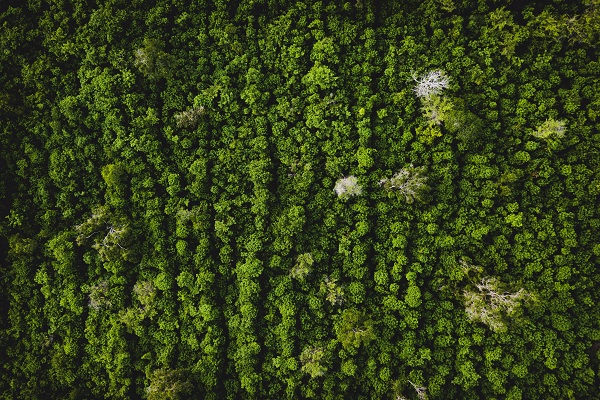“Man on this planet can only be saved if he takes care, not only for his own life, but for all living things as well, respecting his life as much as the life around him” said Herbert Gruhl (German politician, environmentalist and writer. He is best known as an author for his book from 1975 “A Planet is plundered – The horror of our politics.
Deep ecology is an environmental philosophy that promotes the inherent value of all living creatures regardless of their instrumental utility to human needs and restructuring of modern human societies in accordance with such ideas.
According to Encyclopedia Britannica, deep ecology as a social movement is based on the belief that humans must radically change their relationship to nature from one that values nature solely for its usefulness to human beings to one that recognizes that nature has an inherent value. Sometimes called “ecosophy”, deep ecology offers a definition of the self that differs from traditional notions and is a social movement that sometimes has religious and mystical undertones.
The phrase originates from 1972 from Norwegian philosopher Arne Naess, who, along with American environmentalist George Sessions, developed a platform of eight organizing principles for the deep ecology social movement. Deep ecology differs from other types of environmentalism in that it gives broader and more basic philosophical claims on metaphysics, epistemology and social justice.
Principles of deep ecology:
- The wellbeing and flourishing of human and non-human life on Earth have value in themselves. These values are independent of the usefulness of the non-human world for human purposes.
- Richness and diversity of life forms contribute to the realization of these values and are also values in themselves.
- Humans have no right to reduce this richness and diversity except to satisfy vital needs.
- The flourishing of human life and cultures is compatible with a substantial decrease of the human population. The flourishing of nonhuman life requires such a decrease.
- Present human interference with the nonhuman world is excessive, and the situation is rapidly worsening.
- The dominant social-political state of living must therefore end. This will radically affect economic, technological and ideological structures. The resulting state of affairs will be fundamentally different from the present.
- The ideological change is mainly that of appreciating value…, rather than adhering to an increasingly higher standard of living. There will be profound awareness of the difference between big and great.
- Those who subscribe to the foregoing points have an obligation directly or indirectly to try to implement the necessary changes.
Deep ecology argues that the natural world is a complex of relationships in which the existence of organisms depends on the existence of others within the ecosystems. It argues that non-vital human interference or destruction of the natural world is a threat not only to people, but also to all organisms that constitute the natural order.
The core principal of deep ecology is the belief that the environment as a whole should be respected and be considered as having certain basic moral and legit rights to live and to flourish, independent of its instrumental benefits for human use.
Deep ecology is often framed in regards to the idea of a much broader sociality; it recognizes diverse communities of life on Earth that are composed not only through biotic factors, but, where applicable, also through ethical relationships, that is, valuing other beings as more than just resources.
Deep ecology takes a holistic view of the world in which humans live and tries to apply to life the understanding that the separate parts of the ecosystem (including humans as well) function as a whole. The philosophy refers to the core principles of various environmental and green movements and advocates for a system of environmental ethics that advocate preservation of the wilderness, non-coercive politics that encourage the decline of human population and simple living.
Supporters of deep ecology apostrophize the catastrophic influence of industrial civilization over nature and recommend its abandonment. As a reason, they state the fact that all previous types of development unconditionally lead to depletion of natural resources and that the environmental problems remain unsolved. This school censors the anthropocentric approach to the relationship man-earth, and by broadening the moral and justice, proclaims the rights of nature. Namely, man is not the only one who has rights; plants also have rights, and animals, and even non-organic elements. Nothing makes the human ambition to exploit nature legitimate. On the contrary, man owes his respect to her and to its creations.
by: Biljana Jordanovska
translation: N. Cvetkovska
Links used:
https://thinkportal2.wordpress.com/2012/09/11/shto-e-dlaboka-ekologija/
https://en.wikipedia.org/wiki/Deep_ecology
https://eprints.ugd.edu.mk/3522/1/Matlievska_Zbornik_EF%20UGD_2010.pdf
https://www.britannica.com/topic/deep-ecology
This post is also available in: MacedonianAlbanian










